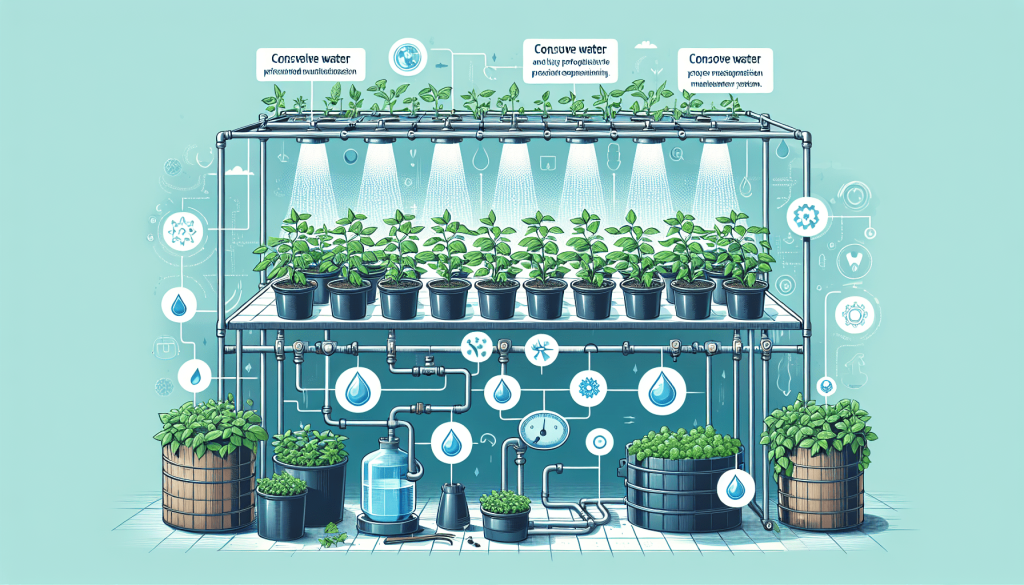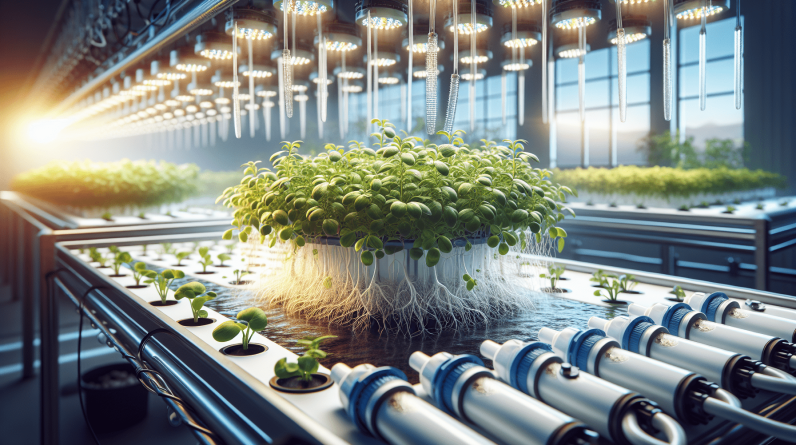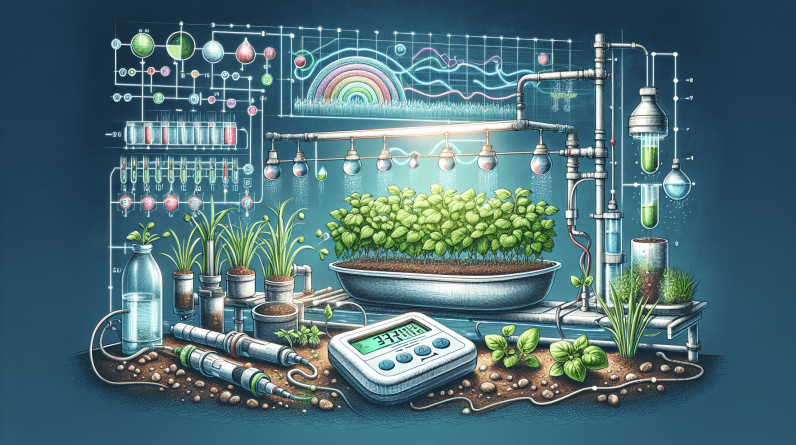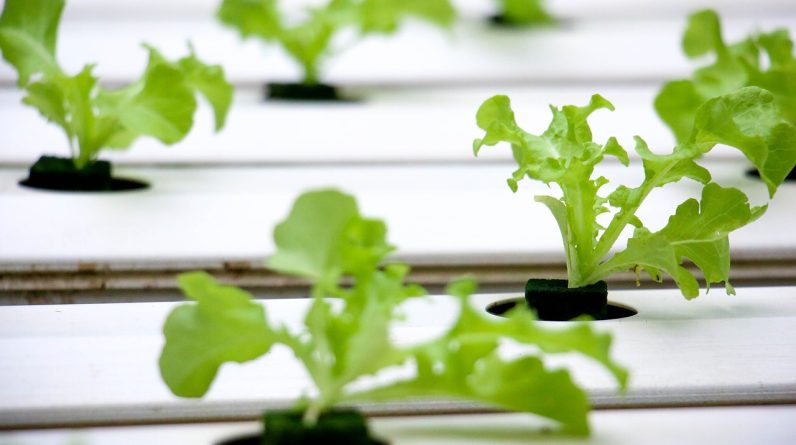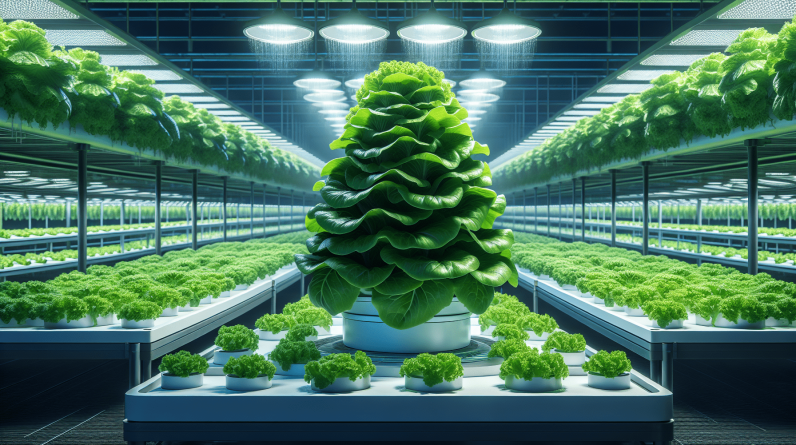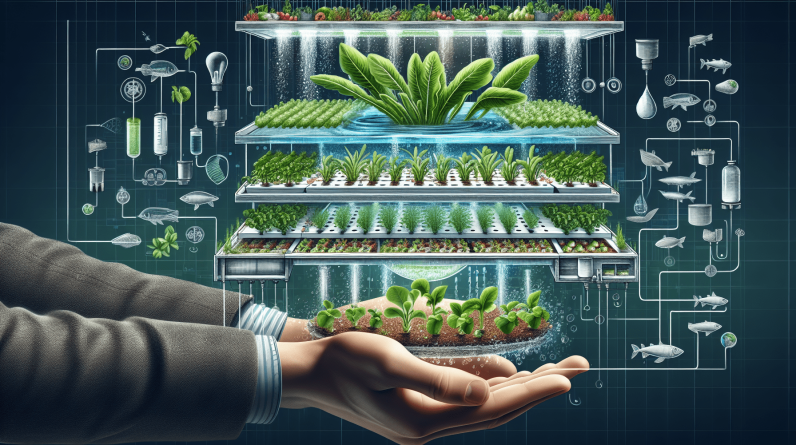
Are you tired of traditional gardening methods and frustrated with limited space? Look no further than the incredible benefits of using a hydroponic growing system. This innovative method of cultivating plants without soil offers numerous advantages, from maximizing space efficiency to reducing water usage. By immersing plant roots in a nutrient-rich water solution, hydroponics promotes faster growth, increased yields, and can be tailored to suit any environment. Discover the endless possibilities of hydroponics and revolutionize your gardening experience today.
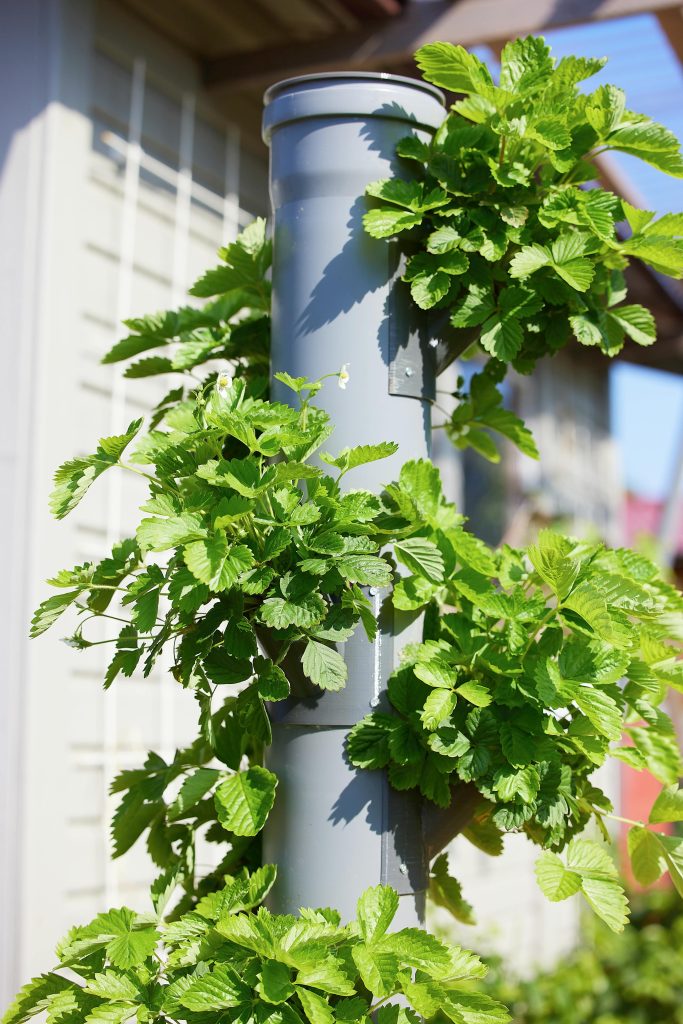
Increased Crop Yield
Optimal Nutrient Delivery
With a hydroponic growing system, you can ensure optimal nutrient delivery to your crops. By directly providing the necessary nutrients to the plant’s roots in a water-based solution, you eliminate the need for the plant to search for nutrients in the soil. This allows the plants to focus their energy on growth and development, resulting in increased crop yield. With the ability to control and adjust the nutrient solution, you can tailor it specifically to the needs of each plant, further optimizing their growth potential.
Controlled Growing Conditions
One of the key advantages of a hydroponic growing system is the ability to have complete control over the growing conditions. You can regulate factors such as temperature, humidity, and lighting, ensuring that the plants are in an optimal environment for growth. This control allows you to extend growing seasons and grow crops that may not thrive in traditional soil-based systems. By providing consistent and suitable conditions, you can maximize crop productivity and yield.
Year-round Growing
Unlike traditional agriculture, a hydroponic growing system allows for year-round growing. By utilizing artificial lighting and controlling the environment, you can create the ideal conditions for plants to grow regardless of the external climate. This continuous growing ability ensures a reliable and consistent supply of fresh produce, even during off-seasons. Additionally, by eliminating the need for crop rotation, you can grow the same crops continuously, further increasing yield and productivity.
Water Conservation
Reduced Water Usage
Water scarcity is a growing concern globally, making water conservation crucial in agricultural practices. hydroponic systems are incredibly water-efficient, using up to 90% less water compared to traditional soil-based farming methods. This is because hydroponics allows for precise control of water delivery, with the ability to recirculate the nutrient-rich water. The closed-loop system minimizes water waste, making it an environmentally friendly choice for farming.
Recirculation of Nutrient-rich Water
In a hydroponic system, water is recirculated through the root zone of the plants, ensuring that there is minimal nutrient runoff. The nutrient-rich water is continuously supplied to the plants, and any excess is collected and reused. This recirculation system not only conserves water but also prevents the loss of valuable nutrients. With the ability to constantly replenish the nutrient solution, plants have a constant source of essential elements, promoting healthy growth and maximizing crop yield.
Space Efficiency
Vertical Farming
Hydroponic systems offer the advantage of vertical farming, where plants are grown vertically in stacked layers. This innovative approach maximizes space utilization by utilizing vertical height instead of horizontal area. By growing plants in multiple layers, you can significantly increase the plant density per square foot. Vertical farming is particularly beneficial in urban areas where space is limited, allowing for high-volume crop production in a compact footprint.
Utilization of Unused Spaces
Hydroponic systems provide the opportunity to utilize unused spaces for agricultural purposes. Whether it’s an abandoned building, warehouse, or rooftop, these empty spaces can be transformed into productive farms. By repurposing underutilized areas for hydroponics, you can make efficient use of existing infrastructure and create sustainable farming solutions in urban environments. This makes hydroponics an ideal choice for urban farming initiatives and contributes to the efficient use of land resources.
Higher Plant Density
With hydroponics, you can achieve higher plant density compared to traditional soil-based farming. In a hydroponic system, plants are grown in a controlled environment and receive direct access to the necessary nutrients. This, combined with the vertical farming approach, allows for tighter spacing between plants. Increased plant density translates to a higher yield per square foot, maximizing the productivity of the available space. This efficiency in spatial utilization is a significant benefit of hydroponic growing systems.
Pest and Disease Control
Reduced Risk of Soil-borne Diseases
One of the key advantages of hydroponic systems is the reduced risk of soil-borne diseases. In traditional soil-based farming, plants are exposed to a variety of soil-borne pathogens and pests that can hinder growth and cause diseases. By eliminating soil from the equation in hydroponics, this risk is significantly reduced. The absence of soil prevents the entry of many common pathogens, creating a cleaner and healthier growing environment. This reduced risk of disease allows for healthier plants with higher resistance to pests and pathogens.
Easier Pest Management
Hydroponic systems offer easier pest management compared to traditional farming methods. With a controlled environment and absence of soil, it is easier to monitor and control pest populations. Integrated pest management techniques can be implemented effectively, with reduced reliance on pesticides. Pest control measures such as beneficial insects, biological controls, and targeted remedies can be applied precisely, minimizing damage to crops. This more efficient and targeted approach to pest management not only protects crops but also reduces the need for chemical inputs.
Isolation from External Contaminants
Hydroponic systems provide a level of isolation from external contaminants that traditional farming cannot offer. By growing plants in a closed and controlled system, you can minimize the risk of contamination from pollutants, chemicals, and pathogens present in the external environment. This isolation ensures a cleaner and safer growing environment for your crops. By ensuring the purity of the growing environment, you can produce high-quality, contaminant-free produce.

Energy Savings
Minimal Heating and Cooling Requirements
Hydroponic systems require minimal heating and cooling compared to traditional farming methods. The controlled environment of a hydroponic system allows for precise regulation of temperature and humidity. With efficient insulation and climate control, energy consumption for heating and cooling can be significantly reduced. This translates to energy savings and lower operating costs in the long run, making hydroponics an economically sustainable choice for agriculture.
Energy-efficient Artificial Lighting
In a hydroponic system, artificial lighting is used to compensate for the lack of natural sunlight. LED grow lights have become increasingly popular in hydroponics due to their energy efficiency and targeted light spectrum. LED lights consume less energy while still providing the necessary light intensity and spectrum for optimal plant growth. By utilizing energy-efficient lighting technologies, you can reduce energy consumption and minimize the carbon footprint of your hydroponic farm.
Fewer Chemical Inputs
No Soil Contamination
With hydroponics, there is no risk of soil contamination. Traditional farming methods often involve the use of fertilizers, pesticides, and herbicides, which can be absorbed by the soil and affect the quality of crops. Hydroponics eliminates the need for soil, ensuring that your crops remain free from any contaminants present in the soil. By reducing soil contamination, you can produce food that is healthier and safer for consumption.
Reduced Need for Pesticides and Herbicides
Hydroponic systems significantly reduce the need for pesticides and herbicides. With a controlled environment and effective pest management techniques, pest populations can be controlled without the excessive use of chemicals. By preventing the entry of pests and implementing integrated pest management strategies, you can minimize crop damage without resorting to harmful pesticides. This reduction in chemical inputs further enhances the safety and quality of the produce.
Decreased Fertilizer Usage
In a hydroponic system, nutrients are delivered directly to the plants’ roots, eliminating the need for excess fertilizer. With traditional soil-based farming, fertilizers are often overused, leading to nutrient runoff and environmental pollution. Hydroponics allows for precise control of nutrient delivery, ensuring that the plants receive the optimal amount of nutrients they need. This targeted approach to nutrient supplementation reduces fertilizer usage and minimizes the environmental impact associated with excess nutrient runoff.
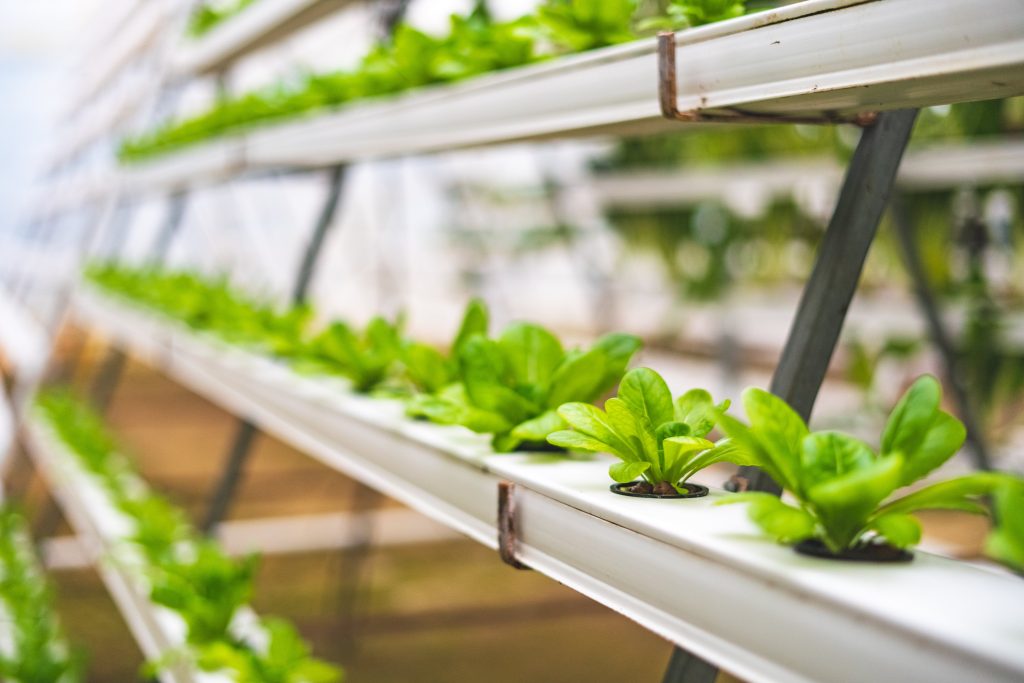
Enhanced Nutritional Value
Optimized Nutrient Balance
With hydroponics, you have complete control over the nutrient solution composition, allowing for an optimized nutrient balance. By tailoring the nutrient solution to meet the specific needs of each crop, you can provide the ideal balance of essential elements for maximum growth and nutritional value. This ability to customize the nutrient solution results in crops that are enriched with essential vitamins, minerals, and other beneficial compounds, ultimately enhancing their nutritional value.
Increased Vitamin and Mineral Content
Hydroponically grown crops often have increased vitamin and mineral content compared to their traditionally cultivated counterparts. The ability to deliver precise amounts of essential nutrients directly to the plants’ roots ensures optimal nutrient uptake. This controlled and targeted nutrient delivery results in crops that are rich in vitamins, minerals, and other beneficial compounds. By consuming hydroponically grown produce, you can enhance your dietary intake of essential nutrients and promote overall health and well-being.
Reduced Nitrate Levels
Excessive nitrate levels in crops can be a health concern. Nitrate accumulation in fruits and vegetables can occur in soil-based farming due to the uncontrolled availability of nutrients. However, in hydroponics, the nutrient solution can be carefully regulated to prevent nitrate accumulation. By maintaining the right nutrient balance and controlling nutrient uptake, hydroponically grown crops often have reduced nitrate levels. This reduction in nitrates contributes to the production of safer and healthier food for consumption.
No Weeding Required
Elimination of Manual Weeding
In a hydroponic system, the absence of soil eliminates the need for manual weeding. Traditional farming methods often require significant time and effort devoted to weeding to control weed competition. With hydroponics, the controlled environment and absence of soil prevent weed growth. This eliminates the need for labor-intensive and time-consuming manual weeding, allowing you to focus your efforts on crop management and other important tasks.
Prevention of Weed Competition
Weeds compete with crops for essential resources such as water, nutrients, and sunlight. In a hydroponic system, the controlled environment and absence of soil effectively prevent weed competition. Without the presence of weeds, your crops can access all the necessary resources without obstruction, allowing for efficient and optimal growth. By eliminating weed competition, you can maximize crop yield and productivity.
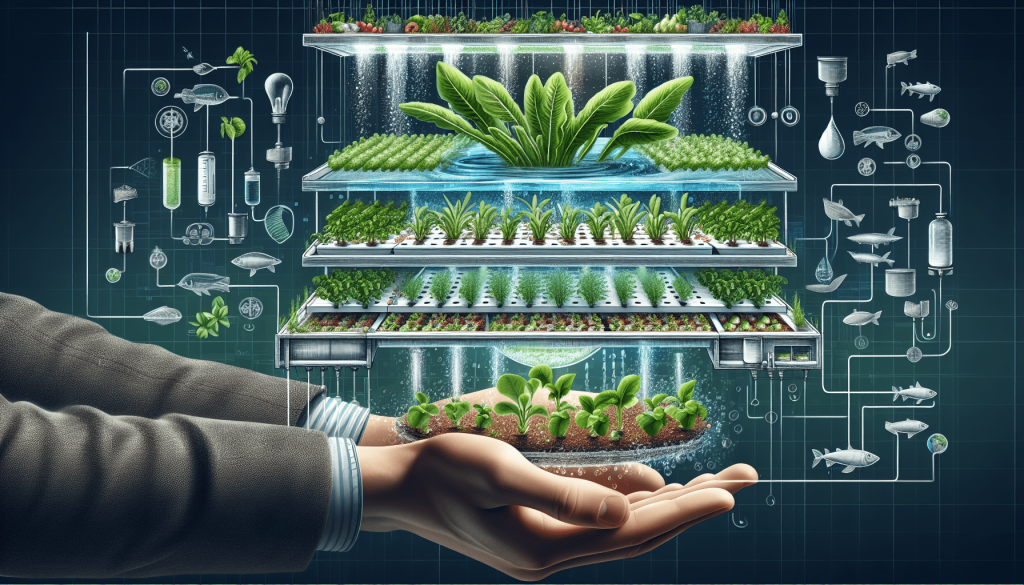
Faster Growth and Harvesting
Controlled Growing Environment
The controlled environment of a hydroponic system promotes faster growth and accelerated crop cycles. With precise control over temperature, humidity, and lighting, you can create the ideal conditions for plant growth and development. This optimized environment enables plants to grow at their maximum potential, resulting in faster growth rates. The ability to manipulate growing conditions allows you to shorten the crop cycle, leading to quicker harvests and higher turnover.
Efficient Nutrient Uptake
In a hydroponic system, plants have direct access to the necessary nutrients, allowing for efficient nutrient uptake. By delivering the nutrients directly to the plant’s roots in a water-based solution, you eliminate any potential nutrient limitations. This efficiency in nutrient uptake allows plants to grow rapidly and thrive. With an abundant supply of readily available nutrients, your crops will experience accelerated growth and maturity, enabling faster harvesting and increased productivity.
Accelerated Crop Cycle
The combination of controlled growing conditions and efficient nutrient uptake in hydroponics leads to an accelerated crop cycle. Compared to traditional soil-based farming, hydroponics allows for faster growth and development of crops. With the ability to manipulate the environment and optimize nutrient delivery, plants can reach maturity more quickly. This shorter crop cycle translates to shorter waiting times between harvests, ultimately leading to increased overall productivity and output.
Educational and Therapeutic Benefits
Hands-on Learning
Hydroponic systems offer valuable educational opportunities, particularly in academic settings. The hands-on nature of hydroponic farming provides a practical and engaging learning experience for students of all ages. By participating in hydroponic gardening, students can develop important skills such as problem-solving, critical thinking, and teamwork. They also gain a deeper understanding of plant biology, sustainability, and the importance of responsible food production practices. The educational benefits of hydroponics extend beyond theoretical knowledge, allowing students to apply their understanding in a practical setting.
Therapeutic Gardening Activities
Hydroponic gardening can be a therapeutic activity that offers relaxation and stress relief. The process of tending to plants, observing their growth, and nurturing them can have a calming and therapeutic effect on individuals. Hydroponic systems are particularly suitable for indoor gardening, making them accessible to individuals who may not have access to outdoor gardening spaces. Engaging in hydroponic gardening activities can promote mental well-being, provide a sense of accomplishment, and serve as a form of therapeutic recreation.
In conclusion, the use of a hydroponic growing system offers numerous benefits across various aspects of agricultural practices. From increased crop yield and water conservation to space efficiency and pest control, hydroponics provides a sustainable and efficient farming solution. Additionally, hydroponics leads to energy savings, requires fewer chemical inputs, enhances nutritional value, eliminates the need for manual weeding, and accelerates growth and harvesting. Furthermore, hydroponics offers educational and therapeutic benefits, promoting hands-on learning and providing opportunities for therapeutic gardening activities. With its comprehensive advantages, a hydroponic growing system proves to be a beneficial choice for modern agriculture.
